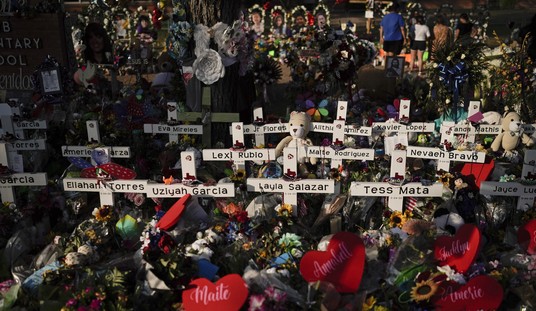The Stoning of Soraya M has not yet hit theaters, but believe me, this is one film that will not appear quietly and disappear without notice. I attended a pre-release screening last night, and it reminded me of all the reasons I love film as an art form and as a medium of communication. When it finally makes it to the theaters, people should line up to see this powerful, dramatic, and disturbing representation of a true story.
The film comes from a book of the same name, written by French-Iranian journalist Freidoune Sahebjam, about the stoning execution of a young wife and mother for the crime of infidelity. Sahebjam discovers this story by accident and had to wait until he gets out of Iran to tell it. The regime in Tehran officially denies that any such executions take place, but at least one videotape of a stoning has been smuggled out of Iran, and many more people have testified to their occurrence.
Soraya’s husband Ali has tired of Soraya after having four children with her, and wants to marry the 14-year-old daughter of one of his prisoners. He can’t afford two wives, so he demands a divorce from Soraya, who refuses for economic reasons. Instead, Ali conspires with the local mullah — a fraud who has to keep Ali from exposing him — to frame Soraya for infidelity. The “evidence” is laughably transparent, but as Soraya notes in the film, “voices of women do not matter here”.
Her aunt Zahra, played by Shohreh Aghdashloo, provides the central voice for the film. It’s mostly told in flashback as she explains what happened to the journalist who only came to town because his car broke down. Aghdashloo provides the voice of conscience and reason in a town gone mad, a village where Soraya’s own father calls her an unprintable name and where her sons join in the stoning. Even with most of the film in subtitles, it is easy to follow and heartbreaking and enraging to watch.
The performances are universally excellent. Aghdashloo, an Iranian ex-patriate herself, brings Zahra and her defiance and despair to life. Mozhan Marno portrays Soraya beautifully, especially in the execution scene. Jim Caveziel plays the journalist, and while he doesn’t get much screen time, he does well with what he has. Navid Negahban provides a malevolent presence as Ali, while David Diaan’s Ebrahim winds up being perhaps the worst of the villains — a good man who refuses to stop an injustice he knows to be happening.
After the film, Aghdashloo and producer Stephen McEveety spoke for a while about their experiences making the film. Ms. Aghdashloo was tremendously open and honest about her own experiences, speaking of her flight from Iran and her efforts to get her family out, and her thoughts on the current regime and their barbaric treatment of women. I introduced myself to McEveety, who remembered that I wrote a review for his other film, An American Carol. After I pried his hands off my neck — you laugh, but it’s true! — I told him what an amazing film this was.
I’d recommend you see both this fall. An American Carol will entertain you and its success will send a message to Hollywood, but The Stoning of Soraya M will send a much more powerful message all around the world — and it will haunt you for a very long time, especially the execution sequence, which had most of the audience tonight in sobs.
If you want more information about stonings in Iran and elsewhere around the world, please visit the film website, www.thestoning.com.
Update: The director, Cyrus Nowrasteh, also stars in John Ziegler’s new film, Blocking the Path to 9/11. Be sure to check Ziegler’s essay on that from yesterday.







Join the conversation as a VIP Member